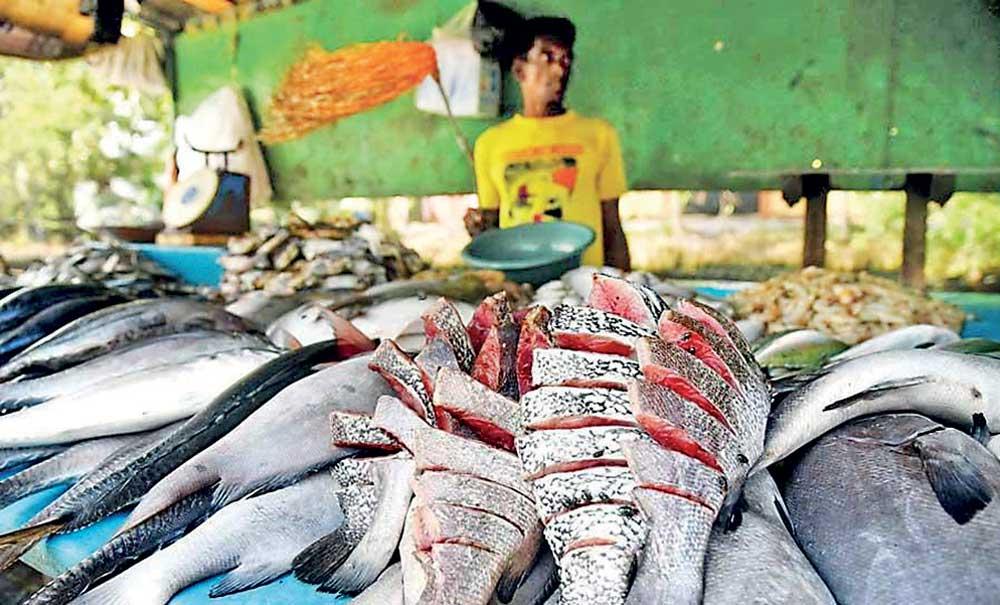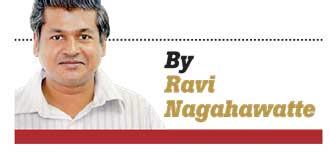04 Jul 2024 - {{hitsCtrl.values.hits}}

There was a time during the pandemic when the fishmonger communities doing business in Peliyagoda and Koswatte areas contracted Covid and people in the area stopped purchasing their products because they believed that fish could carry the Covid germ
 Sri Lankans as a whole refuse to accept the official version of analysis and what is explained as the truth. At present the biggest truth that everyone in this sun kissed island must be aware of is that the Government of Sri Lanka (GoSL) has negotiated with representatives of the Bilateral Lenders Official Creditors Committee (BLOCC) and China to restructure debts amounting to US$ 10 billion. However, the government is concerned regarding false information that’s circulated about debt restructuring.
Sri Lankans as a whole refuse to accept the official version of analysis and what is explained as the truth. At present the biggest truth that everyone in this sun kissed island must be aware of is that the Government of Sri Lanka (GoSL) has negotiated with representatives of the Bilateral Lenders Official Creditors Committee (BLOCC) and China to restructure debts amounting to US$ 10 billion. However, the government is concerned regarding false information that’s circulated about debt restructuring.
Sajith Premadasa, the Opposition Leader and also the Leader of the SJB, affirms that although the President claims that his regime has been successful in extending the repayment period for some of the foreign loans till 2028, the government couldn’t secure an extension until 2033 as agreed by the IMF in March, 2023. The President has accepted the fact that there are unofficial versions regarding Sri Lanka’s debt restructuring being circulated. He rates this as misinformation being spread. So, what’s not true is being circulated out there and the president is concerned. Does this highlight that it’s easy to drill what’s not true into the minds of Sri Lankans? The answer is ‘yes’, because believing in untruths seems to be a character inbuilt in Sri Lankans.
We remember the pandemic days when the fishmonger communities doing business in Peliyagoda and Koswatte areas contracted the Covid-19 virus. As a result, people in the area stopped purchasing fish. This was because the message was spread by rumour mongers that fish purchased from the markets in these infected areas carried the Covid-19 germ and those who ate the fish would contract the disease. However much doctors tried to squash this rumour, using medical opinions, those efforts were to no avail.
There is a 30% floating vote and an upcoming presidential election, to be held before this year concludes. Social media sites are loaded with propaganda and promoting lawmakers from at least two of the top alliances which are expected to nominate their candidates for the elections. At least one candidate, who is now one of the hot favourites to win the Presidential Election, gets an advertisement carried on television to promote his cause. The advertisement says ‘at this juncture he is the individual to choose’; the message when simplified tells voters that there is no choice this time except voting for one individual. Do we need propaganda and advertising campaigns to help us make up our minds about whom to vote?
This is not the time to pursue political ambition. This is the time to do something worthy for the country at a time when its economy is on life-support. People, however, believe that politicians are still trying to fish in troubled waters, when the truth is that at least one person out there is genuinely trying to resurrect a fallen economy.
It’s so hard to convince anybody to do anything at this juncture in the times we are living. Some breadwinners have mounting loans to settle and some have even lost their jobs. But these breadwinners might not reveal the real situations they are in to their families, for when ‘hope’ vanishes, everything is lost. Families will still keep hope on the breadwinner even if the income earning individual lies about the challenges he or she faces. Even within the family circle the version that everything is
okay is promoted.
Sri Lankans believing in untruths and the half truths are now full of the misery generated from the use of credit cards, because people believed that a plastic card could lift their living conditions.
In reality people want to immigrate and earn their salaries in US Dollars. There was a time when despite the news being spread that people who immigrated abroad were returning- due to promised conditions elsewhere, not being met- Sri Lankans are still queuing up to leave this island in search of greener pastures. However, the official version promoted by the GoSL regarding ‘life’ in the island is ‘this is a nation where you would want to stay’.
Sri Lankans harbour their suspicions when foreigners wish to invest in business here. It’s the same when an ambitious businessman boasting of an affluent background wishes to set-up a business or a factory in the village. Villagers and the clergy in the area believe the rubbish that environmentalists spread and block such projects. These projects have the potential to offer thousands of jobs to the less affluent.
This is a country where it’s chronicled history states that Gautama Buddha set foot here three times. Buddhism remains the most practiced religion or philosophy in the island and receives state patronage for most of its functions. But when one considers the Buddhist monks that entered parliament and some of the clergy that are not so strict with their practice we are compelled to think that some Buddhists have embraced the ceremonial practices of this religion and assume that they are closer to the truth. This version of Buddhism is very popular in Sri Lanka.
This is a time where the government has to tell the people the truth. Can we work ourselves out of bankruptcy? Does the effort the people in this country put in supporting the regime to meet IMF regulations suffice? The answers to these questions will define the future of Sri Lanka no doubt.
24 Nov 2024 1 hours ago
24 Nov 2024 4 hours ago
24 Nov 2024 5 hours ago
24 Nov 2024 5 hours ago